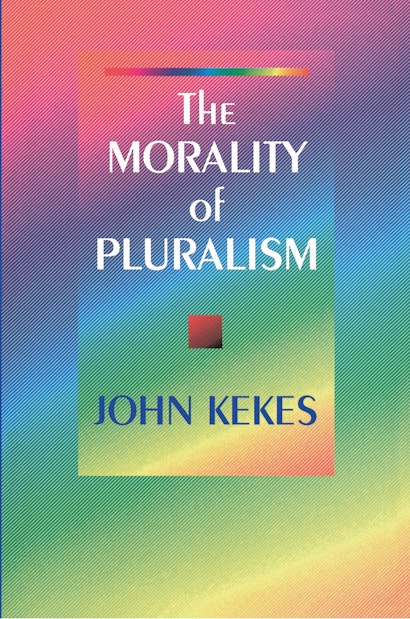Controversies about abortion, the environment, pornography, AIDS, and similar issues naturally lead to the question of whether there are any values that can be ultimately justified, or whether values are simply conventional. John Kekes argues that the present moral and political uncertainties are due to a deep change in our society from a dogmatic to a pluralistic view of values. Dogmatism is committed to there being only one justifiable system of values. Pluralism recognizes many such systems, and yet it avoids a chaotic relativism according to which all values are in the end arbitrary. Maintaining that good lives must be reasonable, but denying that they must conform to one true pattern, Kekes develops and justifies a pluralistic account of good lives and values, and works out its political, moral, and personal implications.
John Kekes is Professor of Philosophy and Public Policy at the State University of New York, Albany. He is author of Moral Tradition and Individuality (Princeton) and Facing Evil (Princeton).
"Kekes's articulation of pluralism has a powerful suppleness. The consequences of adopting such an understanding of pluralism in the political sphere are genuinely thought-provoking."—Stephen Mulhall, The Times Literary Supplement
"In this eloquent work, Kekes proposes an apology for moral pluralism.... He painstakingly analyzes the radicality of moral conflict, which cannot be masked by resort to facile monisms. Further, he carefully sketches a reasonable approach to the practical resolution of value conflicts in the individual and the political orders. . . . [H]e provides a remarkable analysis of moral imagination as the locus of possible moral and aesthetic values, the rich horizon of our actual pluralism."—John J, Conley, S.J., Theological Studies
"Kekes's presentation of pluralism is the first sustained account of an important new moral theory and a formidable attempt to refute the claim that `our morality is disintegrating.'"—Choice
"Kekes's book is a study of a neglected and profoundly crucial issue in political thought: the nature and presuppositions of ethical pluralism and its implications for political philosophy. The contribution it makes to reflection on this issue is subtle, original, and of the first importance."—John Gray, Jesus College, University of Oxford

